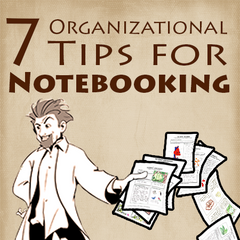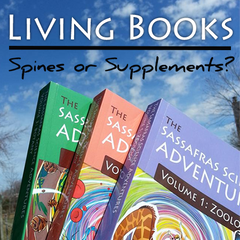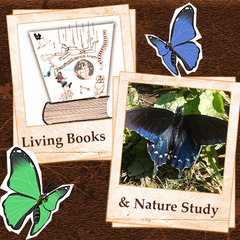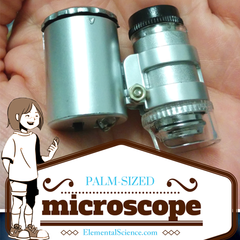FREE Shipping on all our products! (Please Note: Orders may experience a delay of a week or more in shipping due to the high volume of orders at this time of year.)
FREE Shipping on all our products! (Please Note: Orders may experience a delay of a week or more in shipping due to the high volume of orders at this time of year.)
Elemental Science Blog
Teaching Physics at Home
June 01, 2015 4 min read

My least favorite science discipline was physics in high school. To me it was a bunch of formulas and dry, boring facts, at least that was my high school experience.
But one of the great things about homeschooling is that we get to explore subjects again. As we teach our children, we get to learn the things we missed and enjoy the subjects we were bored by in high school.
7 Organizational Tips For Notebooking
May 12, 2015 3 min read

Paige is back to share some incredible organizational tips for notebooking that you don't want to miss!!
Science Extras - Crafts, Activities, and More!
May 01, 2015 2 min read

The extras are optional. They are not an essential key to teaching science, so why should you even bother with them in the first place?
In short, the extras spice things up and keep your student interested in learning about science.
A Rumblin’ In The Tumblin’ (Why Does Your Stomach Growl?)
April 28, 2015 2 min read

Why does your stomach growl? Burly Scav, one of the local experts from our anatomy leg, has come by today to share the answer with us!
How To Use Living Books – Spines Or Supplements?
April 14, 2015 2 min read

Should you use a living book as a spine or as a supplement? Come see how to use living books along with questions to help you determine-spine or supplement.
The 3rd Key to Teaching Science - Keeping a Record
April 01, 2015 3 min read

Studies have shown that the act of writing down information or taking notes increases a person’s ability to remember that data.
Keeping a record gives our students another chance to interact with the information. It provides them another touch-point that helps to firmly affix the material into their minds.
How A Living Book Once Saved The World
March 03, 2015 2 min read

Blaine Sassafras here! Today, I’m going to share with you a mind-blowing short story about how a living book once saved the world.
The 2nd Key to Teaching Science - Gathering Information
March 01, 2015 3 min read

Science is more than experiments, there are principles that the students also need to know. At its core, science is a combination of facts and applications.
We need to teach our students the facts that have been proven to be true. We also need to provide them with an awareness of the theories that scientists are still studying.
As we gradually build their knowledge base over time, we provide the students with a knowledge base for further discovery.
Living Books And Nature Study Go Hand-In-Hand
February 03, 2015 3 min read

Often we look at living books and nature study as the fun extras of science education, but can you really use them to teach science?
The 1st Key to Teaching Science – Performing Hands-on Scientific Tests
February 01, 2015 3 min read

We generally hear the word “experiments” used for all types of hands-on scientific tests. So, I wanted to explain what I mean by the term. Here’s my definition:
A hands-on scientific test gives your student a chance to see, practice, test, or learn about a principle, or principles, in science.
Here are the five main types of scientific tests I regularly recommend using with your students:
How To Use Living Books With Middle School Students
January 06, 2015 6 min read

Palm-Sized Microscope Review
November 10, 2014 2 min read

Here at Sassafras Science headquarters Blaine and I get to try out lots of science stuff. Today, we are sharing what we think of the palm-sized microscope.
Join Us
Sign up to get monthly science tips, plus the latest on new releases and more…

